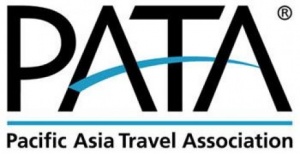PATA positions itself in the face of change

The Pacific Asia Travel Association (PATA)’s role as a membership association was the focus of discussions at the first plenary session of the PATA 60th anniversary and Conference today, at the China World Hotel, Beijing.
Taking the anniversary theme ‘Building Tourism: Past. Present. Progressive’, Plenary 1 considered PATA’s impact over the past 60-years, its relevance today, and its commitment to the future.
Introducing the session, lead presenter Robert Broadfoot, managing director, Political and Economic Risk Consultancy, Ltd, provided an overview of some of the key factors influencing the changing landscape of the region’s travel and tourism industry. His presentation focussed closely on major infrastructure developments in China over the course of the next 10-years. This included massive investment in the country’s railways, airports and energy security, which would certainly offer new opportunities to the tourism industry and the country as a whole.
Participating in the panel discussion that followed were representatives of different sectors within the travel and tourism industry, such as government, carrier, hospitality and industry, as well as Tavalea Nilon, the PATA 2011 ‘Face of the Future’ winner and Jon Hutchison, a PATA Life member. The session was moderated by TIME magazine’s Liam Fitzpatrick. Each of the representatives discussed the challenges faced by the industry as a whole, as well as the role of PATA over the years.
Said Hutchison, chief executive officer of Business Events, Sydney: “We cannot underestimate the role of PATA. The region is changing constantly, and PATA should be part of that change by realigning itself.”
ADVERTISEMENT
Also participating in the debate was Hans Lerch, vice chairman and chief executive officer, Hotelplan Holding AG, who represented the industry sector. He expressed his concern over the big changes that are making an impact on the tourism industry. Said Lerch: “There has been a shift from Europe to Asia as big volumes of tourists are now coming from Asian countries.”
Said Chanin Donavanik, CEO, Dusit International, and representing the hospitality sector on the panel: “Many more Asians will travel in the next few years, and I don’t know how we can cope with that kind of rapid growth. Perhaps that’s something that PATA can help us address.”
David Scowsill, president and CEO, WTTC said: “It’s important for associations like PATA and the WTTC to beat the drum together to enable tourism to be recognised as a significant economic contributor.
Said Marcio Favilla, executive director (External Relations and Partnership), UNWTO: “The Asia Pacific is getting a bigger share of the tourism pie. Thirty years ago, 70% of travel was within advanced economies. Last year, 53% of travel came from developed countries and 47% from emerging economies. In no time, the percentage will be broken down to a 50-50 split.”
Said Dai Bin, president, China Tourism Academy: “We had a simple goal of getting more international arrivals but now we have to think of the broader participation of China in the industry. The per capita consumption of tourism is still very low in China compared to the number of its population. Despite the growth of tourism in China, the government has placed priority in preserving ancient cultures while also encouraging young people to get involved in travel and tourism through study exchange programmes.
“Tourism is not just about economic benefits, we also need to take a look at the satisfaction of the tourists. Advancement is meaningless if tourists are not satisfied.” As a result, they are conducting surveys to get feedback on the tourists’ experience,” added Bin.
This session was followed by Plenary Two, held in the afternoon. It featured the ‘Tomorrow’s Tourism’ contest finalists who presented a pitch on their vision for tomorrow’s tourism to the panel of judges who were, respectively, Amitabh Kant, managing director, Delhi-Mumbai Industrial Corridor; Ray Hammond, futurologist and Richard Quest, anchor and presenter, CNN. The three finalists were Yunliang Zhao, Yichen Yan and Rui Qian, representing the Shanghai Institute of Tourism; Fiona Huang Hao, Institute for Tourism Studies, Macau; and Mridu Sahgal and Vinay Kumar from the Heritage Institute of Hotel and Tourism, Agra. They were selected from over 30-entries by a panel of judges representing PATA’s Education and Training Committee.
The first team presented a mathematical equation that would calculate the green tourism domestic product (GTDP) and tourism domestic product of a country, while team two had a presentation that focussed on community-based tourism that would create new jobs. Team three presented a sun model that showed how employment, infrastructure, tourist facilities, feedback and follow ups, industrial participation, events, living standards and government approaches could help improve tourism.
Out of the three finalists, Fiona Huang Ho from Macau walked away with the prize award of USS$1,500 and a chance to participate in a session with PATA Life members and selected industry professionals the following day.

